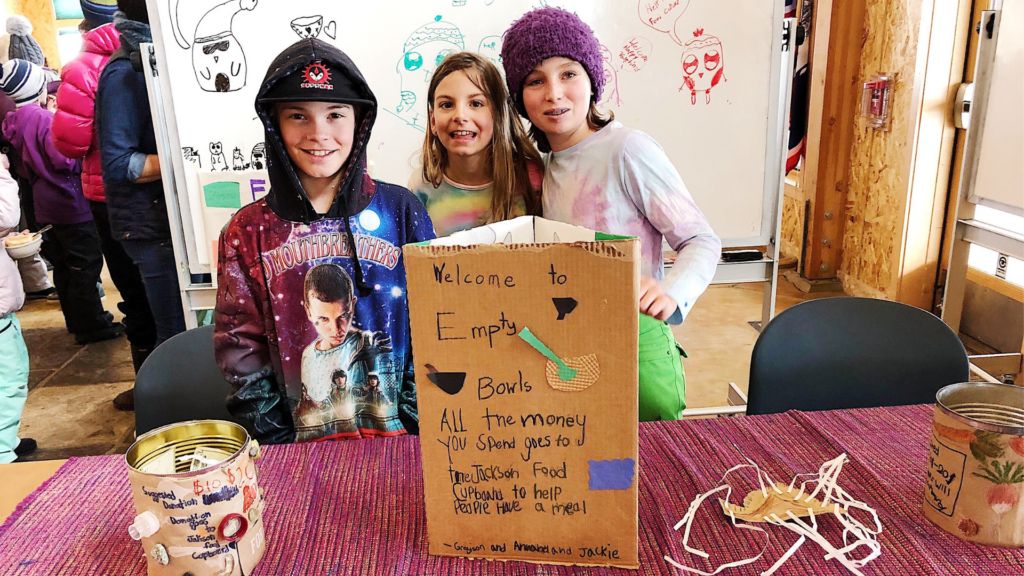“We believe in the potential of place-based education to empower students with greater autonomy and more agency so that they can identify and take ownership over complex community and global challenges.”
– A Quickstart Guide to Implementing Place-Based Education by Getting Smart in partnership with Teton Science Schools
At Journeys School, field trips, or “journeys,” are an essential component of the curriculum. Journeys are hours-long to multi-day excursions where students have the opportunity to get outside the comforts of the classroom, connect to community, make observations, and ask relevant questions based on their experiences. These trips are designed to increase student engagement, improve understanding, and drive deeper learning—exactly what we saw from the elementary school’s journeys this past January.
A simple observation leads to some big questions
It was on a weekly excursion in January that second and third grade students first noticed something out of the ordinary—the visitor center in town was closed on a day it would normally be open. Why would that be? From their observation and further inquiry, students uncovered that the closure was due to a government shutdown. A government shutdown? This piqued students’ interest.
Students continued exploring the shutdown and began investigating food insecurity associated with it. Through this process, they discovered their neighbors on the Wind River Reservation weren’t receiving their government subsidy checks, which in turn created a lack of food available at food pantries. Local food banks were also operating beyond typical hours to provide food for furloughed employees. The takeaway was — government shutdown = limited resources for certain individuals (money) = limited access to essential living requirements like food.
Connecting the dots
Leveraging student interest and these new discoveries, Journeys School teachers were able to further connect the dots between the government shutdown and food insecurity. They engaged students in a series of activities, experiences and, ultimately, a community gathering poised to make a difference:
- An extended journey with purpose. On their winter service journey, kindergarten through fifth grade students worked through a budgeting activity where small, multi-age groups were given limited resources (stickers in lieu of money) and had to make family decisions about how to spend those resources. This helped students understand all of the needs and choices we make around economics and how that might impact food insecurity.
- Conversations with context. Students visited Hole Food Rescue, The Good Samaritan Mission and Jackson Cupboard to talk with local leaders and learn more about how those organizations help with food insecurity in Teton Valley.
- An impactful community fundraiser. Culminating their winter service journey, students hosted an “Empty Bowls” fundraising luncheon to raise money for the Jackson Cupboard. With the help of participating local restaurants — Butter, The Granary, Glorietta, Teton Science Schools’ own Chef Kyle, Whole Grocer and 460 Bread — students sold a soup and bread lunch, alongside their own student-glazed ceramic bowls. At the end of the day, they had more than 125 people in attendance and raised more than $700.

What’s next?
Shannon Shuptrine, Journeys School Faculty, says, “Our students hope to continue their work with the Jackson Cupboard through our Spanish program. When they visited they noticed many signs needed to be translated and updated so George, our Spanish teacher, is looking into doing this service work.” Again, another inspiring example of how field trips lead to observations, observations to inquiry, and inquiry to action.


